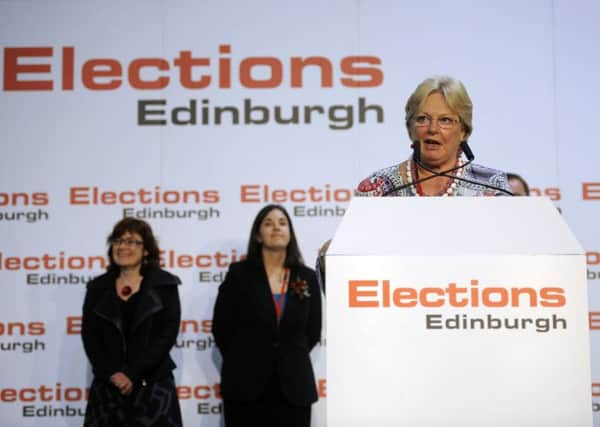Holyrood 2016: Smaller parties eye regional list seats


IF the polls are right, the SNP is set to win most, if not all, of the constituency seats in Lothian and across Scotland – which means the fiercest battle in the election is over the crucial regional list seats.
Should the Nationalists achieve a clean sweep in the first-past-the-post contests, they will not qualify for many seats from the list, which is used to bring the share of seats more into line with the total votes each party receives.
Advertisement
Hide AdAdvertisement
Hide AdBut all the other parties will have to get most of their MSPs from these top-up lists.
In Lothian, the last Holyrood election in 2011 saw the SNP win eight out of the nine constituencies, while Labour held on to the remaining one – Edinburgh Northern and Leith.
That meant Labour took three of the seven list seats, the Tories two, the Greens one and the late Independent MSP Margo MacDonald won the other.
Ms MacDonald’s death two years ago left a gap which was never filled. Normally when a regional MSP dies, their place in parliament goes to the next party colleague on the list. But because she was elected as an individual rather than on a party list, there was no-one to inherit Ms MacDonald’s place and there is no provision for by-elections in such circumstances.
Advertisement
Hide AdAdvertisement
Hide AdIt means there is an extra seat up for grabs this time – and analysis suggests Ms MacDonald drew votes from across the political spectrum, so no one party can expect to pick up her support.
In practice, parties need a minimum of six or seven per cent of the overall vote to get a list seat.
Scottish Labour leader Kezia Dugdale is top of Labour’s list and more or less certain to be elected, as is the number two on the party’s list, Neil Findlay.
But if Labour’s vote slumps badly, number three Sarah Boyack – who as been an MSP since the start of devolution – could be at risk.
Advertisement
Hide AdAdvertisement
Hide AdScottish Tory leader Ruth Davidson, elected last time on the Glasgow list, has switched to Lothian and is top of her party’s list here. Both the sitting Tory MSPs in Lothian – Gavin Brown and Cameron Buchanan – have stepped down.
Ms Davidson and number two Miles Briggs can both be confident of getting in. And the party hopes Ms Davidson’s high profile might attract enough extra votes to help secure a third list MSP. That would be Gordon Lindhurst, who has fought many previous elections without success.
The SNP list includes many of the MSPs expected to win constituency seats. The highest-ranked candidate not standing in a seat is businesswoman Jil Murphy.
The Greens have had an MSP in Lothian since the first Scottish Parliament elections in 1999. They are optimistic they can win list votes from SNP supporters and get two seats this time, allowing land reform campaigner Andy Wightman to join Alison Johnstone. Lothian was the only region to elect two Green MSPs back in 2003 when the party had seven MSPs across Scotland in what was known as the “rainbow” parliament, so there is a precedent.
Advertisement
Hide AdAdvertisement
Hide AdAnd the Lib Dems – who held two Lothian constituencies until the 2011 election – are hoping they can get Alex Cole-Hamilton elected from his number one slot on their list if he is unsuccessful in trying to win Edinburgh Western back from the SNP.
Former Scottish Socialist Party MSP Colin Fox is top of the list for new left-wing alliance Rise (Respect, Independence, Socialism, Environmentalism) but would need to improve dramatically on the SSP’s performance last time to win a seat. Other parties are also fielding candidates on the list, including Ukip, with Alan Melville as its top candidate; Tommy Sheridan’s Solidarity; and the Women’s Equality Party.